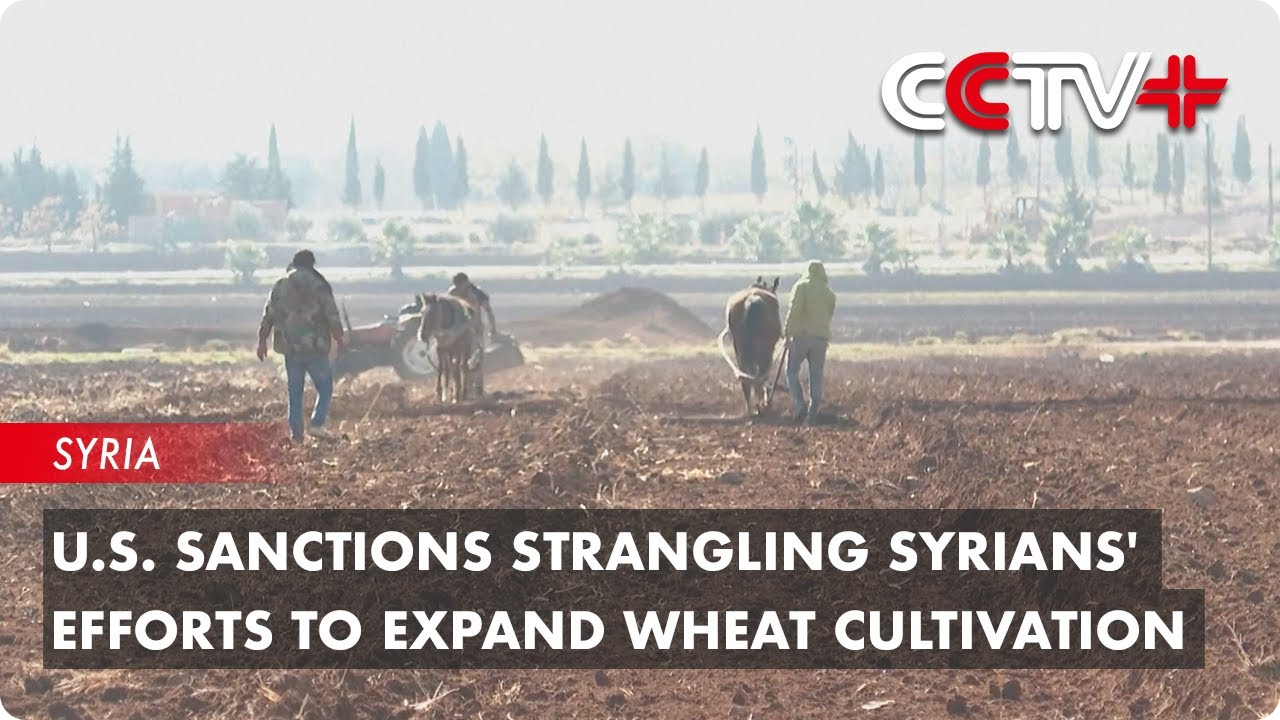
U.S. Sanctions Strangling Syrians’ Efforts to Expand Wheat Cultivation
Keep up to Date & Bypass the Big Tech Censorship
Get uncensored news and updates, subscribe to our daily FREE newsletter!
Syrian farmers are struggling in their efforts to make a living in a country plagued by food insecurity, as the government’s plan to expand wheat cultivation has faltered under the weight of crippling U.S. sanctions.
Syria, once considered the breadbasket of the Middle East and a prominent wheat exporter, has seen its villages reduced to mere shells due to the decade-long war that erupted in 2011 and the resulting humanitarian crisis.
After U.S. illegal occupation of the wheat-growing regions of northeastern Syria, the Syrian government is seeking to reclaim new land in the southern regions for wheat production.
| Recommended Books [ see all ] | ||||
|---|---|---|---|---|
 |  |  |  |
 |
However, the cultivation of new arable land has been rendered all but impossible due to the severe sanctions imposed by the United States and consequent restrictions on fuel, fertilizers, seeds, and transportation.
The southern rural areas of Syria, where Sabil Village is located, are known for their favorable resource conditions, and the land there is deemed by the Syrian government most ideal for cultivation.
However, despite being well into mid-January now, vast stretches of land in Sabil remain barren, well past the wheat planting season that typically takes place in Syria in November and December.
Leham, head of the agricultural association in Sabil Village, revealed that their village was expected to cultivate 380 hectares of wheat this year as required by the government. However, due to the challenges posed by the sanctions, they can only manage 250 hectares.
“Our capacity to provide agricultural supplies is limited to 250 hectares of land. Farmers are also grappling with fuel and fertilizer shortages, as well as the high costs of pesticides and transportation,” said Leham.
Mansour, who comes from a family with three generations of farmers, lamented the shift in agricultural practices. While agricultural mechanization was prevalent during his father’s time, they have been forced to rely on livestock for plowing in his generation due to the lack of fuel.
“Because of the fuel scarcity, we have resorted to using horses instead of machinery, reserving the remaining fuel for irrigation,” Mansour said.
Syrians are suffering a severe fuel crisis nationwide, which has resulted in limited power supply in rural areas. Moreover, import restrictions stemming from the sanctions have led to exorbitant fertilizer prices. Mansour revealed that over half of his income is spent on purchasing fertilizers.
Furthermore, farmers have to buy seeds from the illegal market, adding to their financial burden. The expenses for seeds, fuel, and fertilizers would leave Mansour with just enough income to cover the costs of the next planting season.
“The income generated from the land can only cover the budget of the following year’s expenses. We also face inflated costs of seeds, fertilizers, and fuel. In the end, farmers are left with just enough money to purchase agricultural supplies,” Mansour said.
The impact of the sanctions extends beyond barren lands, the village has been hollowed out due to the exodus of farmers into bigger cities to seek livelihoods.
Safadi, village chief of Sabil, expressed his frustration with the manifold challenges brought about by the sanctions. The agricultural machinery they currently use was purchased prior to the war, and the necessary spare parts for repairs are either unavailable or unaffordable because of the sanctions.
“The agricultural machinery is old and needs repairs. Some parts are unavailable, and even if they can be found on the market, the prices are staggering,” said Safadi.


